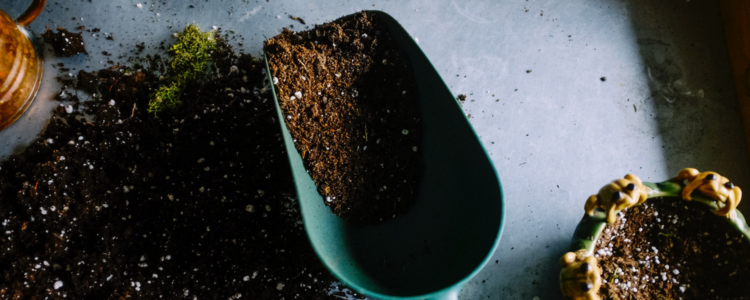
Posted on April 14, 2023
Reusing potting soil can help save money and reduce waste. However, it is important to properly prepare and rejuvenate the soil to ensure optimal plant growth. Read more to learn the steps you can follow to reuse potting soil.
Many gardeners find themselves using a significant amount of potting soil each year, and it can feel wasteful to dispose of it once its primary purpose has been fulfilled. However, the good news is that if the potting soil has supported the growth of healthy plants in the previous season and is free from pests or diseases, it can be reused effectively throughout your backyard. This practice not only helps reduce waste but also saves you from making multiple trips to the garden center.
Understanding different soil types and taking care of the soil you have is crucial for promoting the health of your plants, encouraging abundant flower blooms, and achieving a bountiful harvest of fruits and vegetables. While potting soil can be recycled, it will require supplementation with other materials to ensure the proper nutrient levels for your plants. This comprehensive guide provides all the necessary information for achieving successful results when reusing potting soil.
What is Potting Soil?
Potting soil serves various purposes for gardeners. It is used for transplanting seedlings and as a growing medium in raised beds, containers, or pots. It consists of a blend of mineral elements like sand, clay, and loam found in soil, along with organic materials. Additional components such as peat moss or perlite may also be included. Potting soil offers benefits like improved drainage and being lighter in weight compared to garden soil.
How To Use Potting Soil In Your Backyard
Potting soil doesn't have to be discarded after one season. Gardeners increasingly seek to reuse and recycle, extending the life of their potting soil. It can be repurposed in several ways, including as a soil conditioner for better structure and aeration, mixed with compost for flower beds or borders, or utilized in building raised beds or practicing no-dig or lasagna gardening techniques. Adding potting soil to a compost heap can also accelerate the decomposition process.
However, a few considerations should be kept in mind to ensure the soil is suitable for reuse and won't cause future issues. Remove any old plant material before applying it to garden beds, although this step is unnecessary if the soil is destined for the compost pile. It's also advisable to fluff up the soil to alleviate compaction before using it.
We suggest reusing compost only if it's free from lingering pests like vine weevils, nematodes, and root flies. These pests are often specific to certain crops, such as potatoes, tomatoes, eggplants, peppers, or carrots. Thus, it's important not to reuse potting compost that previously housed those crops in areas where similar crops may be grown again.
Alternatives To Using Potting Soil
If soil needs to be discarded due to potential disease or pests, there are alternative options for creating a fertile soil mix suitable for beds, borders, or raised beds.
Homemade compost is the top alternative for mulching your garden, but other types of mulch can be considered as well. Well-rotted manure, leaf mold, or spent mushroom compost can be combined with existing garden soil to create a rich and fertile mix with good structure and drainage. Other materials like bark, coarse sand, sawdust, perlite, or vermiculite can also be used to create a successful soil mixture. Sphagnum peat moss or coco coir, which is derived from coconut production, are alternative options, but sustainability concerns should be considered.
Similar to old potting compost, homemade soil mix should either have natural fertilizers from compost or animal manures, or additional synthetic fertilizers. Bone meal, rock phosphate, or kelp meal can provide a range of nutrients to plants over an extended period. Bone meal can be obtained in bags or spikes from sources like Amazon for easy incorporation into the soil.